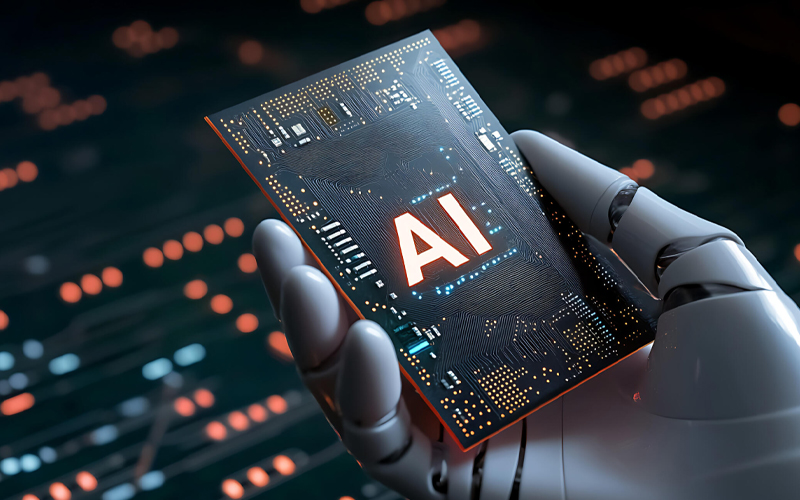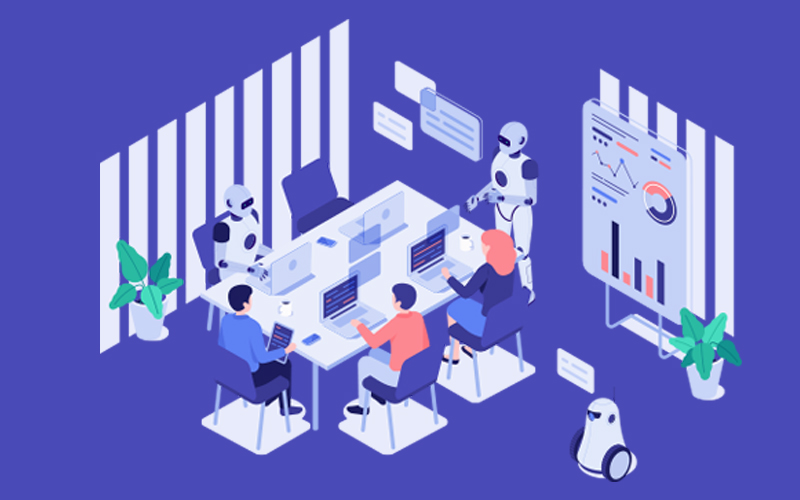We’ve seen how new technology impacts the way we do business – right from the industrial revolution to the most recent AI revolution. The difference has been the speed with which AI is impacting our ways of working. While the industrial revolution resembled a train that chuffed and puffed into the station, the AI revolution seems to resemble a silent sweep of light that magically changes the landscape around us. Agentic AI is the new kid on the block, all set to re-imagine how we do business, every aspect of it.
What are AI Agents?
AI agents are autonomous systems that can perceive the context they operate in, respond to changing inputs, learn on the go, and achieve their objectives without human intervention. Unlike traditional automation, AI agents can handle intricate workflows that need cognitive abilities. Sounds like a human brain but with AI’s speed and learning capabilities, right?
There are various types of AI agents. For example, simple reflex agents respond directly to inputs using basic rules, while model-based agents maintain internal world representations for better decision making. Learning agents in AI improve through experience, adapting to new situations over time, while hierarchical agents can be organized in multi-level structures for complex coordination. Businesses can embed AI agents in different facets, from basic customer support to complex recommendation systems.
Their inherent ability to be autonomous and adaptable along with their ‘critical thinking’ capabilities makes Agentic AI ideal for organizations in today’s digital landscape. These intelligent agents are transforming how organizations manage and optimize complex workflows. We are rapidly moving from an era of rigid predefined processes to dynamic, self-optimizing operations, with AI Agents acting as catalysts that enable business to scale, innovate, and grow.
Autonomous Process Management with Agentic AI
Agentic AI models can interpret real-time data, assess changing contexts, and independently adjust actions. These knowledge-based agents operate with minimal human intervention while continuously learning and improving from experience. Agentic Process Management (APM) employs intelligent AI systems to execute tasks independently, make decisions, and adapt to changes much like skilled team members would. This capability allows organizations to create sophisticated, autonomous workflows that can respond dynamically to unexpected scenarios and changing business conditions.
Agentic AI in Business Process Management (BPM) enables autonomous workflows of even complex operations. These systems self-learn, continuously analyze feedback to optimize processes over time, and reduce the need for manual intervention. When operational demands increase, agentic AI can scale seamlessly by leveraging cloud platforms, APIs, and large language models without compromising performance. Unlike traditional systems that are limited by their requirement for manual upgrades, Agentic AI allows organizations to adapt to changes in their ecosystem nimbly and scale at the drop of a hat.
Real-World Applications of Agentic AI
While AI agents are autonomous and can function independently, they can also come together to build multi-agent AI systems. These AI systems can then tackle interconnected tasks to unravel complex scenarios. Supply chain management is one such area where AI agents and their capabilities can be used. For example, Walmart has developed an AI-driven supply chain management system that leverages this capability. The system autonomously predicts demand fluctuations, automates inventory restocking, and optimizes logistics operations. Their implementation showcases how businesses can leverage agentic AI to optimize supply chain operations, reduce costs, and enhance customer satisfaction through improved product availability.
Learning agents in AI exhibit remarkable adaptability to changing business environments. They can interpret real-time data and adjust processes accordingly without constant human oversight. This agility provides organizations with unprecedented responsiveness to market changes, customer needs, and operational disruptions, creating resilient business processes that can withstand volatility. For example, JPMorgan Chase uses AI agents in finance through their Contract Intelligence (COiN) system. This system processes complex legal and financial documents to extract critical insights. The AI-powered trading algorithms autonomously analyze market trends and execute trades. This implementation demonstrates how AI agents for banking can optimize financial decision-making, reduce operational bottlenecks, and enhance risk management protocols.
Improving Productivity with AI-Human Collaboration
Rather than replacing human workers, human agents in AI frameworks establish complementary relationships with AI systems. By automating repetitive yet cognitive tasks, agentic AI enables employees to concentrate on creative, strategic activities that leverage uniquely human capabilities. This collaboration maximizes workforce productivity while creating more engaging work environments focused on innovation rather than routine operations.
An interesting case-study is that of Amazon’s. Amazon has deployed multi-agent systems for customer support, integrating Alexa AI, Amazon Lex, and AI-powered chatbots with their contact centers. These agents handle customer queries autonomously, escalating only complex cases to human representatives. This application illustrates how agentic models in AI can simultaneously reduce operational costs and improve customer experience by collaborating with employees in an organization.
At the same time, implementing agentic AI in BPM also poses data security concern, and establishing a balance between human oversight and AI autonomy is imperative. Organizations must develop frameworks that ensure AI agents operate within ethical boundaries while maintaining operational efficiency.
The Future of BPM with Agentic AI
The future of BPM lies in increasingly sophisticated types of AI agents that can handle greater complexity and autonomy. As these technologies mature, we can expect further integration of learning agents capable of managing entire business processes with minimal human intervention. This is set to fundamentally transform how organizations operate. For businesses looking to remain competitive in rapidly evolving markets, implementing agentic AI systems within BPM frameworks is becoming less of a luxury and more of a strategic necessity. The advantage? It offers unprecedented adaptability, efficiency, and intelligence to business operations.
How Can Infosys BPM Help
At Infosys BPM, we help integrate Agentic AI into business processes, enhancing agility, efficiency, and strategic impact. Reach out to our team today and navigate your next with confidence.







